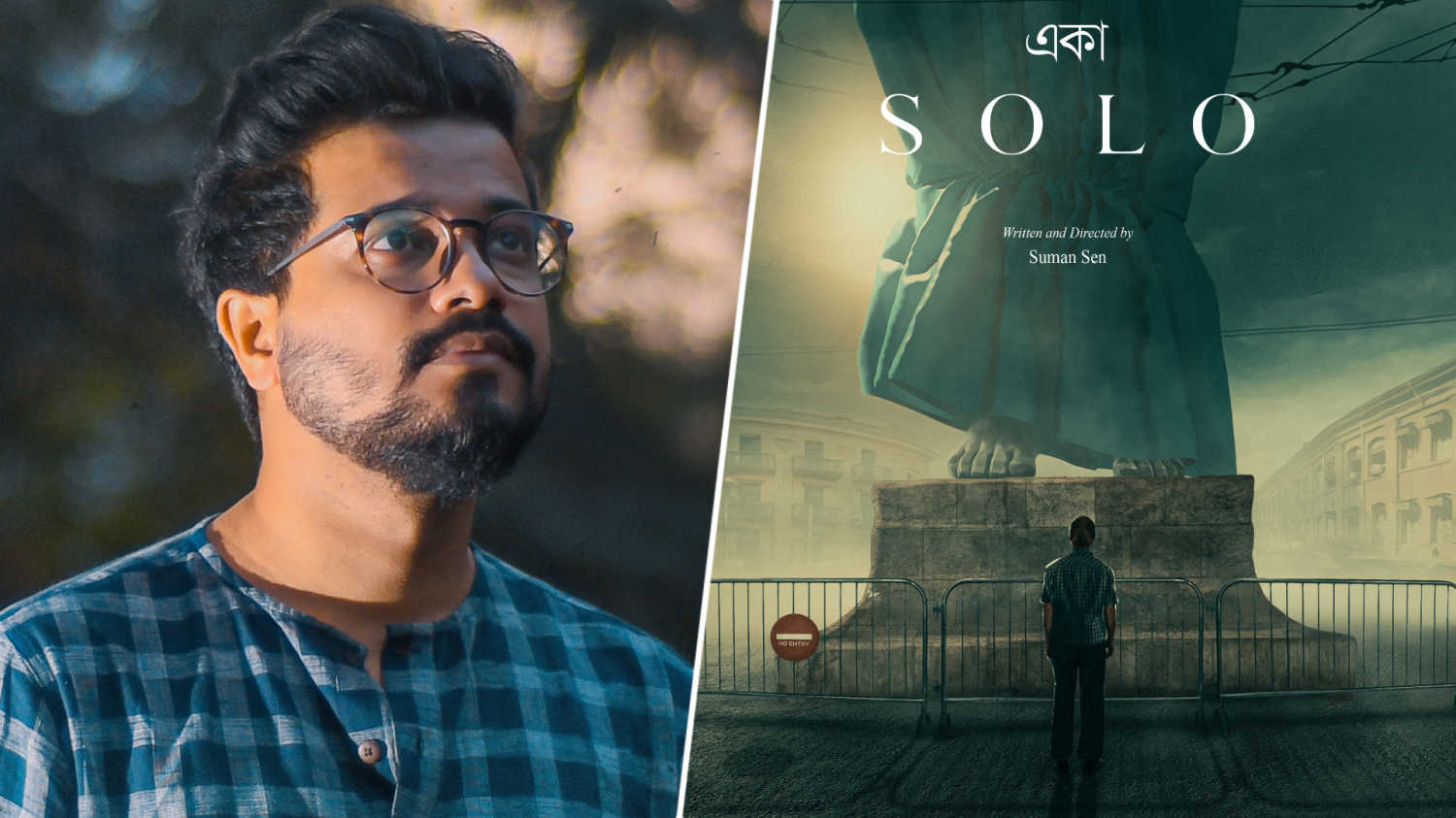The writer-director speaks about his debut film, which has been selected for the La Fabrique Cinéma de l'Institut Français at the Cannes Film Festival this year.
Eka refers to the helplessness of a solitary person, says filmmaker Suman Sen
Mumbai - 02 Jul 2021 13:08 IST


Sonal Pandya
Suman Sen's first film Eka (Solo) is one of ten projects that have been selected for the prestigious La Fabrique Cinéma de l'Institut Français programme at the Cannes Film Festival this year. The annual programme is tailored for young upcoming filmmakers across emerging countries to network globally with distributors and agents, giving them a huge leg up in the process.
The feature film, the sole Indian project selected, has been co-produced by Bangladesh's Goopy Bagha Productions and France's DW Productions. Sen’s debut, set in Kolkata, is said to be “a gritty socio-political feature”. The filmmaker has based his story from the viewpoint of a common man, a 56-year-old insurance agent named Biplab.
The film takes place over a week when a yet-to-be unveiled statue leads to upheaval and awakening in Biplab's life. The 'common man' finally realizes he can take it no longer, leading the way to a revolt and a larger protest, in the process.
In an email interview, the filmmaker, who is already in Paris, France, shared his thoughts about his selection for the programme, the upcoming journey and his motivation to make the feature.
Excerpts below:
How does it feel like to be the only Indian project selected this year for the prestigious Fabrique Cinéma de l’Institut Français 2021?
It is indeed special and humbling, but honestly, I do not want to restrict it to an 'Indian project', as I believe an art medium like this should not have any boundaries. It is a language-agnostic form. The purpose of this programme is primarily to make you part of a global community.
What does this mean for you?
It is the desired international accreditation. The importance of this market is not only economic. The sheer prestige it gives the project will provide us with the strength to reach the next level of pre-production and the intention of international co-production in concrete agreements. This will also validate the intensity of the project and the underlying potential to connect with the larger audience.
What plans do you have for the film now that you will be a part of this programme?
We have already raised sizeable funding for the film. We will be applying for more international funding to secure the cost. We are planning to start the pre-production phase by end of this year and begin shooting by mid next year, but everything depends on the pandemic situation.
Do you have anyone in mind for the role of Biplab?
It is too early for me to comment on anything, but we are in discussions with a few of the finest actors in the country. We want to cast actors from Bangladesh as well. Beyond that, I would like to do a thorough auditioning process.
How long have you been developing Eka (Solo)?
Almost three and half years.
You’ve said the film reflects the current scenario of the nation; how did the idea of the film come to you?
Around 2013, a man named Erdem Gündüz stood quietly in Istanbul’s Taksim Square in protest against the government. It created a never-seen-before mass movement. The incident immediately resonated with me. Somehow, I could connect with him. I could see Biplab, the protagonist of my film, in him. The incident left a huge impact on me and inspired me to conceive the film. The title of the film refers to the helplessness of a solo person, who has been in a cesspool of unproductive stagnancy.
In the last couple of years, a number of people’s movements and mass protests across the world have reinstalled my hope. From Hong Kong to Dhaka, from Tahrir Square to France, from Chile to Spain, the world is erupting with rage and people are taking to the streets. The continuing social resistance and student movements in my own country have deeply moved me at the same time. Social media has reduced the cost and complexity of organizing masses into a single, cohesive political force. In the process, it has redefined social activism. As it continues to evolve to develop new platforms, it creates new opportunities for political expression that become increasingly difficult for others to suppress.
Can you tell us what drew you to filmmaking? Who are your influences?
It was never a very confirmed decision; I had always worked in advertising and I felt, at a very early stage, that I wanted to have full control of a bigger narrative. I enjoyed doing that more than anything else. I have always been an avid film lover. I cannot mention a particular moment but I think it was an evolving decision. I feel my conscious following of music, architecture, design, photography and art defined my voice and shaped my narrative style. It was a humbling exploration of self-discovery.
Since I am self-taught, I love to observe everything keenly. The world around me keeps fascinating me; I try to get inspired by what is happening around me. There are too many directors who have helped me to shape my outlook but I would just like to mention two contemporary directors whom I find fascinating — the Greek filmmaker Yorgos Lanthimos and Chilean filmmaker Patricio Guzman.
You have also co-founded Fickle Formula, the new-age content studio which is in Mumbai. What kind of projects do you hope to develop and produce through it?
We specialize in producing solution-based branded content, CSR-led social impact films, animated content, digital commercials, AFP and content IP.
Related topics
Cannes Festival


